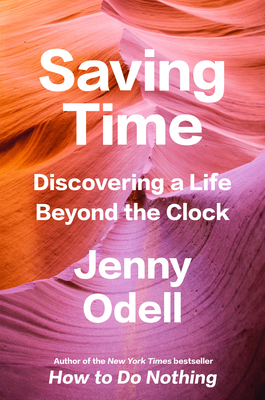Copertina rigida, 400 pagine
lingua English
Pubblicato il 23 Marzo 2023 da Vintage.

Copertina rigida, 400 pagine
lingua English
Pubblicato il 23 Marzo 2023 da Vintage.
Our daily experience, dominated by the corporate clock that so many of us contort ourselves to fit inside, is destroying us. It wasn't built for people, it was built for profit. This is a book that tears open the seams of reality as we know it--the way we experience time itself--and rearranges it, reimagining a world not centered around work, the office clock, or the profit motive. Explaining how we got to the point where time became money, Odell offers us new models to live by--inspired by pre-industrial cultures, ecological, and geological time--that make a more humane, more hopeful way of living seem possible.
In this dazzling, subversive, and deeply hopeful reframing of time, Jenny Odell takes us on a journey through other temporal habitats. As planet-bound animals, we live inside shortening and lengthening days, alongside gardens growing, birds migrating, and cliffs eroding. The stretchy quality of waiting and desire, …
Our daily experience, dominated by the corporate clock that so many of us contort ourselves to fit inside, is destroying us. It wasn't built for people, it was built for profit. This is a book that tears open the seams of reality as we know it--the way we experience time itself--and rearranges it, reimagining a world not centered around work, the office clock, or the profit motive. Explaining how we got to the point where time became money, Odell offers us new models to live by--inspired by pre-industrial cultures, ecological, and geological time--that make a more humane, more hopeful way of living seem possible.
In this dazzling, subversive, and deeply hopeful reframing of time, Jenny Odell takes us on a journey through other temporal habitats. As planet-bound animals, we live inside shortening and lengthening days, alongside gardens growing, birds migrating, and cliffs eroding. The stretchy quality of waiting and desire, the way the present may suddenly feel marbled with childhood memory, the slow but sure procession of a pregnancy, or the time it takes to heal from injuries--physical or emotional. Odell urges us to become stewards of these different rhythms of life, to imagine a life, identity, and source of meaning outside of the world of work and profit, and to understand that the trajectory of our lives--or the life of the planet--is not a foregone conclusion. In that sense, "saving" time--recovering its fundamentally irreducible and inventive nature--could also mean that time saves us.